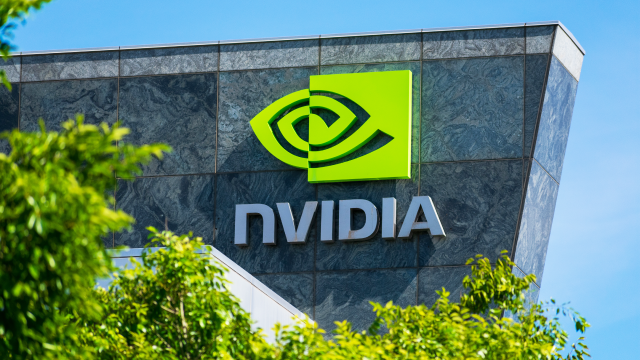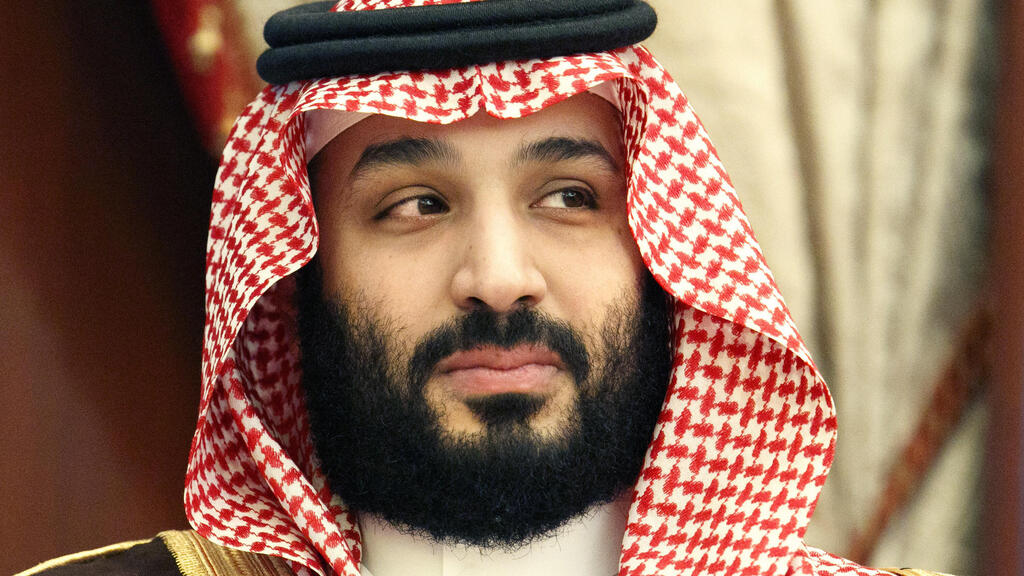Getting your Trinity Audio player ready...
Saudi Arabia and the United Arab Emirates are among the biggest customers of artificial intelligence chips made by Nvidia in the last six months. According to a report by the Financial Times on Monday night, more than 3,000 chips at a price of $40,000 per unit will be transferred to Saudi Arabia alone for the development of a large language model (LLM) at the King Abdullah University of Science and Technology (KAUST), or a total budget of $120 million for the establishment of the Saudi model.
Beyond that, the United Arab Emirates also wants to be part of the artificial intelligence race and to that end the Emirates have purchased thousands of chips for a local language model known as Falcon, developed at the Technological Innovation Institute in Abu Dhabi.
Read more:
This move is the result of an insight reached by the rulers of the Gulf and Saudi Arabia - to be independent on the ground and not dependent on the goodwill of Washington or the self-interested embrace of Beijing. But that doesn't stop them from using American hardware and Chinese manpower. Nvidia is American and most of the AI researchers involved in the local developments are Chinese.
"The United Arab Emirates has made a decision to control and own the computing technology and the talent needed to operate it. More importantly, they have the capital required to implement the move, they have the energy sources and they are trying to attract the leading talents in the field to them," said a source close to the Emirate's AI moves.
The race for Nvidia chips makes the company an important strategic asset for the American and global economy. According to estimates, it is expected to sell about 550,000 chips in 2023, mainly to the American market. However, a significant number of those chips will also reach foreign countries and probably even China.
The increasing demands on its chips to develop large language models (LLMs) make each version upgrade a business bonanza for the company. To visualize the numbers, consider that training the language model GPT-3, the predecessor of GPT-4, required about 1,024 A100 chips and a month of computational work. That is, as language models become more sophisticated, they require more and more chips for their training.
Saudi Arabia, for example, already has 200 A100 chips and plan to build a supercomputer there called "Shaheen 3." The latter will be powered by about 700 Grace Hopper Superchips - Nvidia's latest superchip, which also includes a great deal of Israeli technology and was developed in Yokneam. These chips are also intended to be used for the development and training of language models, but not only.
Most of the researchers working on these developments in Saudi Arabia are Chinese. It is not clear to what extent the Arab country cooperates with China on this issue, however. Beijing is apparently very interested in this, since its researchers who study American technologies will be able to assist in the development of parallel chips in China.
Another problem arising from the involvement of Saudi Arabia, the United Arab Emirates and China in AI developments is the fear that they will not really apply the rules of ethics or reasonable protections to the technologies they develop. But that doesn't stop venture capital funds and leading investors such as Marc Andreessen from trying to participate in the development.
2 View gallery


The race for Israel's Nvidia chips makes the company an important strategic asset for the American and global economy
(Photo: Shutterstock)
It is not clear how many foreign investors are participating in this, however. What is certain is that the Saudi and Emirati venture capital funds are fully involved in this. In any case, the dubious legacy of Saudi Arabia and the Gulf countries in ignoring human rights, for example the case of Jamal Khashoggi, the Washington Post journalist and opponent of the Saudi regime who was murdered on the orders of the Saudi authorities in Turkey.
"Journalists and regime opponents are common targets for these governments (Saudi Arabia and the United Arab Emirates)," according to Iverna McGowan, director of the European branch of the Center for Democracy and Technology. "If you combine this with the known capabilities of discrimination and the increased surveillance that they allow – this is a scary thought."
The Saudis and the Emirates do not hesitate to look for talents and technologies wherever possible –- whether they are startups or well-known companies. Testimonies of senior officials in the field of proposals received from these parties are very generous financially.
On one hand, the US is very happy with the rising business of Nvidia, Intel and others. But on the other hand, it is very worried about China's attempts to circumvent the restrictions on the sales of these chips. Now it also has to juggle the Arab allies who do not really consider Washington's demands. There is no doubt that some American exports may spill over to third-party factors.
Israel should also be concerned by these moves. While the country has already initiated the establishment of a local supercomputer as well as the promotion of artificial intelligence technologies, the new budgets presented by the Ministry of Innovation headed by Ofir Akunis are far from the resources of the Gulf countries.


